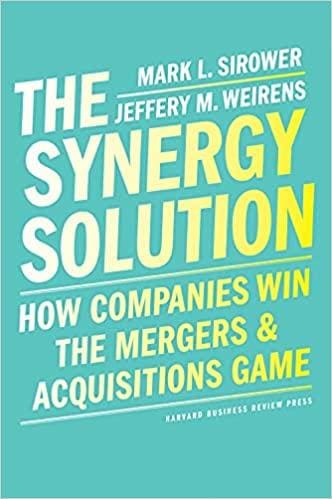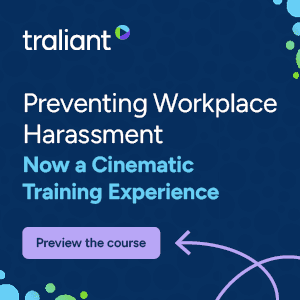Boards of directors and company leadership tend to go about acquisitions in one of two ways. Some are presented with opportunities and react accordingly. Others determine what they want and go out and get it. The former strategy, argue the authors in this excerpt of The Synergy Solution, has set many the acquirer up for a fall.
Successful M&A begins with becoming a prepared acquirer— focusing on an “always on” watch list of the most important deals and making M&A strategy a part of a company’s larger strategic aspirations and priorities. Prepared acquirers make difficult choices to establish a thoughtful agenda for their capital and pursue acquisitions based on a coherent strategy of how to compete and win in their chosen markets—and delight customers in ways not easily replicated by competitors.
Reactors spend most of their time in diligence on deals that emerge trying to avoid false positives (accepting deals that should have been rejected) and thus drive up their risk of false negatives (rejecting a whole universe of other deals that might have been better). When a company reacts to a single opportunity, it has implicitly ruled out other potentially better alternatives that were not even considered.
Most companies, though, don’t have an M&A strategy—they don’t know what they want. Instead, they are reactors. Executive teams have kicked around lots of ideas for growth and M&A, but they aren’t aligned around what the goals of their M&A program should be. They haven’t thought through the deals they believe are the most important for their businesses, nor have they confronted a universe of other deals they may have no business even examining in the first place. They have few priorities.
Breaking Down Reactor Behavior
Consider the hypothetical case of a company we’ll call Homeland Technologies, a rapid-growth company that competes in the government IT services business. Founded in 1975, Homeland went public in 2011 with revenue of roughly $500M. Through internal growth and several small acquisitions, Homeland has successfully grown to $2B in revenue with respectable shareholder returns. Now, Homeland CEO Chas Ferguson is preparing to announce he intends to double revenues within three years and has asked an investment banker to bring him prospective acquisitions that will enable him to meet that goal. The board has given the thumbs up for Ferguson to begin conducting due diligence on deals brought to the company.
Is there anything wrong with this familiar picture? While motivated by the best of intentions, Homeland and its board are unwittingly about to join the growing ranks of other reactor companies—companies that make the often fatal mistake of outsourcing their inorganic growth strategy to investment bankers or other external parties, and merely react to available deals.
Unless it gets extraordinarily lucky, Homeland, like the vast majority of reactors, will likely execute one or more transactions—major capital investments—that disappoint investors as they send clear signals to sell rather than buy their shares at announcement.

Such mistakes are most common during merger waves, when inexperienced companies rapidly enter the acquisition game or companies with experience look for more or larger deals and radically change their risk profiles. That’s how we get a wave shape. Companies can be driving toward M&A simply because so many other companies in their industry have started pursuing deals, and their banker warns them about being left without a dancing partner. (See the sidebar, “Great Myths of Reactor Behavior.”) No one wants a Wall Street Journal reporter to write, “The world was changing and Charlie just sat there,” but that pressure rarely yields a good result. Lacking a well-developed growth thesis, these unprepared companies engineer their own failures as they become part of the merger bandwagon.
Even worse, when reactors bid but don’t close a deal or two, and the news gets out on their failed attempts, they feel even more compelled to close something. Sellers really love those reactors. Their largest strategic choices get made for them.
Great Myths of Reactor Behavior
Merger waves bring with them powerful myths that help support many reactive and unfortunate decisions. The following is an all-star lineup from the last few decades. Board members in particular should hold shareholders’ pockets tightly when hearing any of the following:
- “Initial market reactions don’t matter, we’re in this for the long term. The stock price of acquirers always drops on announcement of a deal.” Well, not on good ones. Negative market reactions are bad news—they are the investors’ perceptions of what the company has communicated to the marketplace.
- “The financials looked fine on paper, but we didn’t manage the cultures right.” This excuse for past deals gone bad has become so powerful that “culture” often gets blamed for everything that goes wrong. Many deals that ultimately fail were predictably failures and managing cultures well rarely rescues a deal with bad economics.
- “Good deals must be accretive to earnings.” There is little correlation between accretion or dilution and the stock market’s assessment of deals. Stock price is earnings per share (EPS) times price-to-earnings (P/E) ratio and a short-term increase in EPS can easily be offset by a drop in the P/E ratio—a proxy for expectations of long-term profitable growth.
- “If we don’t do this deal, we’ll be the last man standing without a dancing partner.” Committing capital to an acquisition through fear of having nothing left to buy is never a good bet for your shareholders. This logic is a signal to all of a lack of preparation.
- “It will cost us much more money and time to build it from scratch.” That may be true, but it might not be the right business or investment in the first place.
Prepared acquirers are the antithesis of reactor companies. These companies have developed a disciplined process that allows them to find good opportunities and avoid predictably poor ones, thereby enabling them to accomplish the chief objectives of successful corporate development: beating competitors and rewarding investors. They establish an agenda for M&A capital through an orchestrated process of strategic choices. They have many options.
Becoming a prepared acquirer is the main focus of this article. But, first, let’s continue to shine a spotlight on reactors because it’s through understanding the problems reactors create for themselves that we can uncover insights and solutions.
The Reactor Condition: Playing Not to Lose
Reactors predictably drive up pre-deal costs and risks and will have significantly reduced expected value from their deals. In an important sense, reactors are anti-strategic.
Reactors typically outsource—that is, hand over—their largest capital investment decisions to third parties who effectively drive a reactor’s growth strategy by bringing them deals to consider. They have given up their power of choice—they don’t have options. They kick around a lot of ideas that don’t yield clear milestones or priorities. Without those priorities, reactors can’t create or maintain an active deal pipeline. As a result, every potential deal that is presented to them is likely to be important to some executive, meaning that the process becomes political and not strategic. Since the CEO can’t explain the, say, 20 most important deals they want to pursue over the next 12–18 months, they don’t have an M&A strategy.
Instead of agreed portfolio priorities or capability needs driving their search for targets, reactors work backward—from an available deal that determines their strategic priorities. That is, reactors have deals chasing a strategy instead of strategy chasing deals. Rather than consider on an ongoing basis the total universe of options, reactors tend to focus exclusively on the deal at hand.
Viewed in isolation, a deal might look attractive, but compared with other potential M&A candidates, it could likely be a poor fit. This is a little like marrying the first seemingly compatible person you ever took out on a date: It could work—but the odds are against it. And the mistake often compounds itself. Enamored with the deal in front of them, reactors often fall prey to a confirmation bias—management may ignore or explain away negative information that emerges and search for positive evidence they are doing the right thing, even in a thorough evaluation of the candidate.
In negotiation terms, it is difficult for reactors to walk away from a deal because there is no better alternative to walk away to. A deal without a BATNA—a “best alternative to a negotiated agreement”—makes it far easier for a reactor to get caught up in the deal frenzy, racing to sign a deal, with full support of their advisers and confirmation bias, because there are no alternatives under consideration. The result: Without discipline and alternatives, internal target valuations converge to how other comparable acquisitions are getting priced, with the focus being on what the reactor must pay to get the deal done as opposed to how much it should pay for the deal at hand. Overpayment and the winner’s curse become predictable.
Reactors also fail to consider potential operating model and integration issues that may affect the ease of actually realizing the value they are paying for. Some deals are going to be tougher and more complex to integrate than others. But because reactors look at deals sequentially, they miss the opportunity to differentiate deals that may more plausibly create value. Even worse, as reactors are forced into a compressed time frame to perform diligence, they typically close a deal with few details of the operating strategy of how the target businesses will be managed. So not only do they run the risk of exaggerated claims of synergies—unable to justify the premium—they greatly increase the risk of damaging the growth value embedded in the target’s stand-alone business as they try to achieve synergies that are unlikely to occur.
Acquiring the wrong company will just create a new set of operational problems beyond the ones that already exist for both companies as stand-alone firms. Little wonder that bad buyers often become good targets themselves. Evidence also suggests that wealth gains from corporate spin-offs may result from the correction of prior M&A mistakes.
What’s more, when reactors trap themselves into reacting to deal pitches from outsiders or by jumping into auctions, they waste precious time and resources that could have been devoted to finding more suitable opportunities in the first place. That’s because management must conduct extensive and expensive due diligence for merger opportunities that present themselves, even though many should never have made it to the table. Careful due diligence may help avoid bad deals, but it doesn’t help a company find the right ones.
Here’s the crux of it: Reactors spend most of their time in diligence on deals that emerge trying to avoid false positives (accepting deals that should have been rejected) and thus drive up their risk of false negatives (rejecting a whole universe of other deals that might have been better). When a company reacts to a single opportunity, it has implicitly ruled out other potentially better alternatives that were not even considered. They trap themselves in a constant game of playing not to lose and, ironically, increase their risk of losing. They have great difficulty explaining to their board why they rejected other opportunities.
Becoming Prepared: Playing to Win
Successful M&A and corporate development require much more than simply attempting to avoid economically unsound deals. Prepared acquirers have a process that enables them to avoid bad deals and at the same time find the value-creating ones. It means the ability to reduce the risk of both false positives as well as false negatives.
Prepared “always on” acquirers play to win instead of only playing not to lose. They fully use their power of choice to bring strategic integrity to M&A by developing a thoughtful agenda for M&A capital. Although they may use external advisers to help them better understand a changing industry landscape, they don’t outsource their strategies. Prepared acquirers treat capital like it is luxurious—expensive to touch and best treated with care. Most important, prepared acquirers have an identifiable M&A strategy. They know what they want and how they will create value.
This article is an excerpt from pages 23-29 of THE SYNERGY SOLUTION: How Companies Win the Mergers & Acquisitions Game (Harvard Business Review Press, 3/15) by Deloitte Partners Mark Sirower & Jeff Weirens.



 Mark L. Sirower is a U.S. Leader in Deloitte’s M&A and Restructuring practice, where he joined in 2008 to launch the M&A Strategy practice. Mark has advised senior executive teams on hundreds of transactions over the past 25 years from strategy and diligence through post-merger integration. Previously, he built the Deals Strategy Group at PwC and was global leader of the M&A practice at the Boston Consulting Group where he developed innovative approaches to crafting M&A strategies, planning integrations, delivering synergies, and creating shareholder value. Mark has taught M&A at the Wharton School, and for 30 years, at the NYU Stern School Executive MBA program. He is the author of the M&A bestseller, The Synergy Trap.
Mark L. Sirower is a U.S. Leader in Deloitte’s M&A and Restructuring practice, where he joined in 2008 to launch the M&A Strategy practice. Mark has advised senior executive teams on hundreds of transactions over the past 25 years from strategy and diligence through post-merger integration. Previously, he built the Deals Strategy Group at PwC and was global leader of the M&A practice at the Boston Consulting Group where he developed innovative approaches to crafting M&A strategies, planning integrations, delivering synergies, and creating shareholder value. Mark has taught M&A at the Wharton School, and for 30 years, at the NYU Stern School Executive MBA program. He is the author of the M&A bestseller, The Synergy Trap. Jeffrey F. Weirens is the Leader of Deloitte’s Global Financial Advisory Business and serves on Deloitte’s Global Executive. For more than 25 years, Jeff has advised clients on several of the world’s most iconic acquisitions and divestitures while growing and transforming Deloitte’s consulting and advisory businesses. He has served in multiple leadership roles including Deloitte Consulting’s Management Committee, the Energy, Resources and Industrials industry, and the Mergers, Acquisitions, and Restructuring practice. He is a trusted advisor to senior client executive teams and Boards of Directors, has advised on hundreds of acquisitions, divestitures, and transformations, and is an expert on post-merger integration and divestitures.
Jeffrey F. Weirens is the Leader of Deloitte’s Global Financial Advisory Business and serves on Deloitte’s Global Executive. For more than 25 years, Jeff has advised clients on several of the world’s most iconic acquisitions and divestitures while growing and transforming Deloitte’s consulting and advisory businesses. He has served in multiple leadership roles including Deloitte Consulting’s Management Committee, the Energy, Resources and Industrials industry, and the Mergers, Acquisitions, and Restructuring practice. He is a trusted advisor to senior client executive teams and Boards of Directors, has advised on hundreds of acquisitions, divestitures, and transformations, and is an expert on post-merger integration and divestitures.






